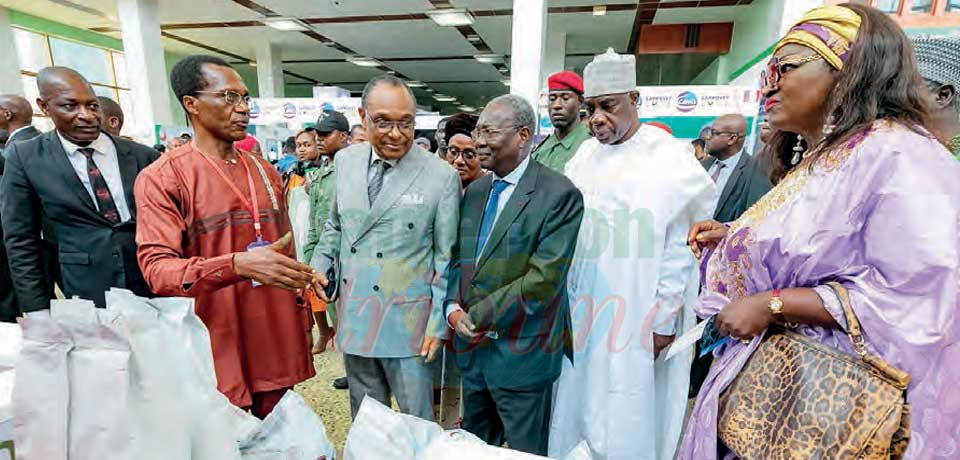Job, Wealth Creation In 2018: SMEs Contributed 20.3% To Gross Domestic Product
- Par Kimeng Hilton
- 13 déc. 2020 09:56
- 0 Likes

The survey on SMEs in Cameroon undertaken by the National Institute of Statistics was released in Yaounde on December 9, 2020.
Government recently ordered a survey or mapping of Small and Medium-size Enterprises, SMEs on aspects such as competiveness, funding sources, geographical spread, contribution to job and wealth creation, and inter-sector relations. Sponsored by the European Union at the cost of over 120,000 Euros (about 78.7 million FCFA), the study was supported by the Small and Medium-size Enterprises Promotion Agency, APME.
The report was presented to the media in Yaounde on December 9, 2020 by Achille Bassilekin III, the Minister of Small and Medium-size Enterprises, Social Economy and Handicraft. “I believe the report will revolutionize the manner in which government and stakeholders handle SME-related matters,” the Minister underscored. “Small and Medium-size Enterprises drive the economy, making up more than 90 per cent of enterprises in Cameroon. The survey will enable us to know in what areas to assist SMEs to become more competitive,” said Filippo Amato, representing the European Union Delegation in Cameroon and Equatorial Guinea.
Some 13 per cent of SMEs in Cameroon offer competitive prices, but most have not taken advantage of the opening up of the economy. Thus, very few of them export their products, the report says. According to the Small and Medium-size Enterprises Promotion Agency, SMEs in 2018 contributed 20.3 per cent to Gross Domestic Product, GDP. As at December 31, 2019, APME had signed 42 deals with SMEs with projected investments of about 43 billion FCFA and the creation of an estimated 4,473 jobs in the first five years of APME’s existence.
Cameroon’s economy is largely based on SMEs, making up 99.7 per cent of businesses, the report notes. Most of the SMEs are located in Yaounde and Douala; with the two cities accounting for 57.4 per cent of Cameroon’s total number of Small and Medium-size Enterprises. Their activities are mainly in the tertiary sector, with most SMEs being personal businesses. In 2018, SMEs contributed 20.3 per cent to Cameroon’s Gross Domestic Product, GDP. Informal SMEs in 2018 contributed...
Cet article complet est réservé aux abonnés
Déjà abonné ? Identifiez-vous >
Accédez en illimité à Cameroon Tribune Digital à partir de 26250 FCFA
Je M'abonne1 minute suffit pour vous abonner à Cameroon Tribune Digital !
- Votre numéro spécial cameroon-tribune en version numérique
- Des encarts
- Des appels d'offres exclusives
- D'avant-première (accès 24h avant la publication)
- Des éditions consultables sur tous supports (smartphone, tablettes, PC)














Commentaires